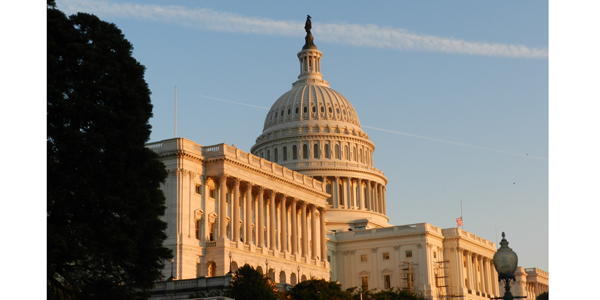Transportation bill will boost construction sector
Business advocates and elected officials said a bipartisan, $127 billion transportation bill passed by Congress June 29 is a step in the right direction, but still puts off the question of how federal transportation programs will be funded in the coming years.

New York state officials and members of Westchester”™s congressional delegation applauded the measure, which they say preserves tens of thousands of construction jobs statewide while slightly increasing the state”™s share of federal highway and transit dollars and boosting chances of securing Transportation Infrastructure Finance and Innovation Act (TIFIA) financing for a new Tappan Zee Bridge.
After months of deadlock between Senate Democrats and House Republicans, a conference committee reached an agreement that extends federal highway and transit funding through October 2014 and that prevents student loan interest rates from doubling for at least another year.
Also included is a provision that significantly increases funding for the federal TIFIA loan program, from $122 million to $750 million in the 2013 fiscal year and $1 billion in the 2014 fiscal year. The federal fiscal calendar runs from Oct. 1 through Sept. 30.
Had an agreement not been reached, federal highway and transit aid programs and the federal government”™s authority to levy fuel taxes would have expired June 30, and student loan interest rates would have increased from 3.4 percent to 6.8 percent on July 1.
New York State Department of Transportation Commissioner Joan McDonald said in an email that the bill “will bring stability to New York and states across the country by enabling long-term transportation planning.”
The bill provides New York with $3.3 billion a year in highway, bridge and transit funding from October 2012 through September 2014, McDonald said. While the state”™s share of federal highway funds, currently $1.625 billion a year, will not significantly increase, transit funds will increase from $1.23 billion a year to $1.43 billion starting this October and to $1.45 billion in October 2013.
Reps. Nita Lowey, a Harrison Democrat, and Nan Hayworth, a Mount Kisco Republican, voted in favor of the measure, which passed the House 373-52 and the Senate 74-19. Both said that it will help to boost jobs in the region”™s construction industry.
Hayworth said that while she was pleased with the bill as a whole, she had hoped to include a provision to allow construction on the proposed Keystone XL pipeline.
House Republicans ultimately conceded on that issue as the deadline for extending transportation funding approached, but Hayworth said it would have provided much-needed revenue.
About two-thirds of the bill will be paid for by the 18.4 cent-a-gallon federal gasoline tax and the 24.4 cent-a-gallon diesel tax, with an estimated $19 billion coming from the national general treasury.
Critics contend that the fuel tax is no longer an acceptable means of funding federal transportation initiatives. The fuel taxes are not indexed for inflation and haven”™t been increased since 1993, causing revenue to fall significantly. Since 2008, Congress has drawn on treasury funds on three occasions to keep transportation programs running, borrowing a total of $34.5 billion, according to The Associated Press.
“We had hoped in the House … to bring the Keystone pipeline online, anticipating that that would provide substantial revenues,” Hayworth said. “I thought that was a great solution, but we could not get the president”™s cooperation on that plan and that does reduce our opportunities for the longer term, trying to be fiscally responsible.”
Ross J. Pepe, president of the Construction Industry Council of Westchester and Hudson Valley Inc., said area contractors and laborers had hoped for something longer than a 27-month extension of the federal transportation funding programs, but added the measure should kick-start the industry and spur job creation.
“(The bill) restores some confidence in the public with respect to federal government investments in infrastructure. And now it”™s time for them to move onto a longer-term measure in a bipartisan way that can create new funding revenues in a transportation program that has needed innovation,” Pepe said.
Marsha Gordon, president and CEO of The Business Council of Westchester and president of BuildTheBridgeNowNY.org, a coalition representing more than 300,000 employees and more than 15,000 employers, said the bill “is a huge boost” for the Tappan Zee Bridge project.
“This enhances the Tappan Zee”™s chances of being competitive for greater amounts of funding,” she said.